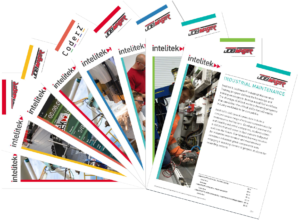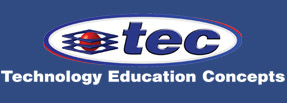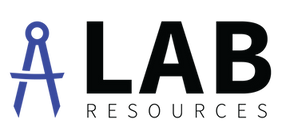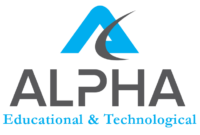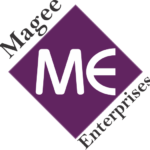
Paraguay transforms its teaching methodologies to create a competitive labor force
A Case Study in Transformational Education Solutions for Students and Instructors
The Ministry of Labor wanted a focus on improvements that would take effect over the next ten years. Change in educational methods would help create the Human Capital the country needed to continue to be prosperous and adjust to the technical changes as Industry 4.0 evolves.
Background
In 2015 the Ministry of Labor in Paraguay was witnessing a growing problem. The building blocks of education around the world were changing, and the emphasis was moving from knowledge transfer towards creative thinking. Program graduates in Paraguay needed support to gain the skills and problem-solving abilities to be increasingly successful in various industries and technical fields, not only now, but in the careers of tomorrow. The Paraguayan labor force realized that a change was needed.
The Ministry of Labor wanted a focus on improvements that would take effect over the next ten years. Change in educational methods would help create the Human Capital the country needed to continue to be prosperous and adjust to the technical changes as Industry 4.0 evolves.
The Ministry of Labor with SNPP and SINAFOCAL launched the PIMA project (Programa de Innovación de Metodologías Avanzadas) to address these education needs.
SNPP and SINAFOCAL
SNPP (Servicio Nacional de Promoción Profesional) and SINAFOCAL (Sistema Nacional de Formación y Capacitación Laboral) are part of the Ministry of Labor, Employment, and Social Security. Their focus is on delivering training to the labor market to make a measurable difference for people at different levels and sectors of the economy, all around the country. They offer courses to people of all ages from 16 up.
The goal of SINAFOCAL and SNPP is to close the widening gap between the vocational education system, and the current needs of the market.
In 2015 students and educators alike agreed that technical education in Paraguay was at its lowest level and that something needed to be done to help the graduates entering the workforce. In Paraguay, 70% of the population of the country are under the age of 34, which makes them the youngest population in Latin America[1]. SINAFOCAL’s part in this mission is to focus on the training of the teachers to serve these graduates better.
Recognizing their current problems, and the way they need to adapt to ensure a bright future for the labor market, they enlisted Intelitek. The goal was simple: SNPP and SINAFOCAL must ensure added value to their educational methodology. They initiated an innovative and revolutionary training methodology that would make it possible to build a new and competitive labor force in the country, supporting over 100,000 students each year. SNPP would be responsible for creating the technologically advanced, hands-on training centers and SINAFOCAL would be responsible for building the future TOT (training of trainers) staff of the country.

Updating our technical education will give the industry the boost it needs. From this initial implementation, we hope to see the creation of new job skills through a faster technical learning cycle. The Intelitek laboratories will allow the new generation to reach their full potential. Ramón Maciel Rojas, SNPP’s General Director.
Intelitek
Intelitek is a global leader in technology learning solutions, empowering students and teachers with career and technology education. With sustainable, scalable solutions and training programs, Intelitek has revolutionized education around the globe, offering programs in Human Capital Development (HCD), technology areas like STEM Education, Automation, Robotics, and Machining. As leaders in the field, Intelitek were well placed to step in and provide the tools and resources for Paraguay to empower their program and develop their human capital into a technologically skilled workforce.
The PIMA project is a tailor-made program for Paraguay based on the methods of the Feuerstein Institute plus DACOTA (DF Training Curriculum Development) and IJPT (Integrated Job-Performance Training), the methodologies chosen by Intelitek to create a sustainable solution for SNPP and SINAFOCAL in Paraguay. These methodologies are already used in sixty countries around the world and are based on the assumption that every individual is modifiable and can improve his or her intellectual achievements and intellectual performance, “if they are given the right methodologies”.
Overall Vision of the Project
To provide equal opportunities to all those entering the labor force in Paraguay, to build independent capabilities for the assessment and development of cognitive potential and to put a focus on the professional enhancement of students.
Methodology
Improve teaching methods to create better students empowered with critical thinking and communication skills.
Create a training infrastructure that would provide a better level of training overall, and support distance learning.

What were the Challenges Involved?
Empowering the human capital in Paraguay comes with its own unique set of challenges. One of the purposes of the program is to improve vocational training methodologies for teens and young adults who will enter the labor market and be there for 40 or 50 years. As such, there were many elements to consider about how to train them:-
- Around the world, we are seeing a change in the way we teach. There is a move from knowledge-based teaching to more creative-based learning. Many different styles of learning need to be carried over, from problem solving to teamwork and project-based studies.
- These adults may one day be working in professions which currently do not exist, using skills which we do not currently
- Existing fields may change beyond recognition in the next half-century or disappear altogether.
- Many students live far away from SNPP training centers are need a solution for distance learning.
To address these challenges, the trainers/educators need to adapt and teach not only skills, but also how to self-educate and to learn new skills in the future.
This has its own challenges:-
- It’s essential to find the best teachers for each topic, and to identify who has an aptitude for teaching and training in which subjects.
- It’s important to find the hidden treasures amongst the teachers; those who may not have been given the opportunity to let their abilities shine in the past.
- Educators will not only need to be able to adapt to job changes, but also be able to pass on these skills to teach the next generation, identifying and training future educational leaders.
The more we can align technical education to the needs of our industry, the more we will stimulate our economy to grow, Dr. Guillermo Sosa Flores, Minister of Labor, Employment, and Social Security.
Making the Change
1. Examining the Gap – TNA Evaluation
First, the Intelitek pedagogic team visited Paraguay to do a drill down, speaking to both students and teachers to better understand the issues involved. This stage is known as Training Needs Analysis (TNA) Evaluation. Simply put, it ensures that the goals of the project meet the reality on the ground. They confirmed that technological education was at a dangerous point. The teaching methodology needed to be improved to enhance quality for the next generation’s career development.
2. Planning a Customized Program
An intricate plan was created by the Intelitek specialist team, which addressed the issues that had been identified. This involved finding the instructors who could lead the country’s TOT staff and could teach the technical education program, and then provide the training and mentoring they needed to achieve their real potential.
Three hundred instructors were evaluated using this methodology independent of their existing ability (neutralizing cultural and environmental factors in their assessments). This was done using LPAD (Learning Propensity Assessment Device), which shows who is best suited for which training opportunities. In the end, 96 candidates were chosen to attend the specialized program.
3. Training
Training to develop the educational staff lasted for 31 months, and instructors received comprehensive knowledge and practice in the following:
- LPAD: How to evaluate student and educator potential without any cultural or experience bias. It can be used for both screening and sorting candidates for success, as well as reference mapping for cognitive abilities.
- IE Training: Instrumental Enrichment which helps develop thinking skills and promotes cognitive development, for both students and teachers.
- Soft Skills, such as improving interpersonal skills to help with interview performance and managing modern day life in Paraguay. Going above and beyond, the training program was honed to differentiate for cultural variations in the regions.
- DF Training Curriculum Development. Also known as DACOTA, this methodology is used in the development of training and training systems. It designed modules for distance learning and provided a thorough analysis of how to uncover which training programs need attention and updating.
These areas were covered using frontal learning, independent learning, group practice, and even on-the-job mentoring.
Using IJPT, a system of real-work scenarios, instructors were slowly introduced into their classes of the program and were given the support of the Intelitek Subject Matter Experts onsite to ensure correct implementation of the training. As the student teachers became more confident, the SME’s took a step back until the teachers were ready to fly solo.

One of the most important outcomes for me as an instructor is that now we will be able to come out of this course and be able to design and implement our own training programs for any company, with the exact skills needed to fit the industry. Belinda Cristaldo an instructor and participant of the program
4. Training Outcomes
Qualified experts from the project: 276
Expert educators who have graduated the Training Development courses include six who are trained to carry out large-scale training needs, 20 who are certified to improve thinking and learning skills, and 124 teachers who can enhance the soft skills of their students.
There are 24 teachers in the process of qualifying to teach distance learning modules and 24 more who will be able to evaluate the cognitive potential of students for future academic studies. There are also 20 managers who are trained to set the goals for new methodologies. This is essential because the nature of the workforce may change beyond recognition over the next generation of workers.
5. Further Success
In addition to the training of students and educators, the PIMA project has changed the face of education in Paraguay in many ways.
- Implemented a convenient distance training system which allows individuals to learn through the internet, thousands at a time. 16 teachers are qualified to create new learning modules for this system.
- Enabled large-scale training needs analysis by SNNP to create a roadmap for the development of SNPP over the next decade and beyond.
- Created CIMA, a new center for innovative methodologies and advancing the development of Human Capital.
- Trained a team of 50 teachers to enhance basic life skills and self-esteem, as well as eight teachers qualified to develop the thinking and learning skills of blind students.
6. Added Value
While past programs have focused on improving knowledge of specific teachers in specific fields, the PIMA project is revolutionary.
PIMA is the first training program to focus on realizing potential rather than existing ability, giving Paraguay the tools and the ability to continue to apply the methodology long after the project is over. With the help of the PIMA project, SNPP is becoming a pioneer in the evaluation of hidden potential in educators and students, as well as changing the paradigm from knowledge-based teaching, to skills and cognitive-based learning.
The project does not discriminate, and is suitable for all societies, from urban to rural areas, including families from lower socio-economic backgrounds. The ongoing methodology called IJPT removes the legacy systems previously implemented in SNPP, and in their place, implements more efficient tools which prepare the teachers and the students for the real needs and expectations of the workplace.

The Impact
Intelitek trainers revitalized the way that the SNPP centers trained their instructors throughout the country. Both the level of teachers and the quality of their teaching improved exponentially. In the short term, SINAFOCAL has improved its central institutions and the quality of training and professionalism beyond recognition.
The newly taught instructors are able to transfer the same level of critical thinking which they had received from their trainers. Instructors became better teachers, and their students received a higher level of training making the students and teachers more valuable to the labor force as a whole.
In addition, the program promises significant long-term success. It has taught the instructors how to evaluate participants for the next generation of educators. They can identify, evaluate, train and implement the courses, which makes it an independent model that can be replicated in years to come.
Thanks to the work that Intelitek has done, Paraguay now has a sustainable model for educational excellence and success, with endless potential to transform human capital. A model that is easily replicated, PIMA is a program which can be customized to suit other countries or regions who want to better cultivate the workforce of tomorrow.

The President of Paraguay, Minister for Labour and SNPP General Director, at the opening ceremony of the Vocational Centre of Technology with methodology integration at Asunción
[1] https://www.embaparcorea.org/eng/sub04/sub02.php

